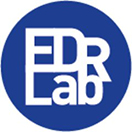Web Publications

W3C Web Publications
A Web Publication is “a collection of one or more constituent resources, organized together in a uniquely identifiable grouping that may be presented using standard Open Web Platform technologies”.
In other words, a Web Publication is a closed set of web resources (html pages with CSS styles and javascript, images …) that can be fetched from a Web Server using http(s).
The structure of the publication is specified by a W3C Publication Manifest, a JSON structure which contains metadata (including a global identifier for the publication), the order in which these resources should be read, a reference to the cover etc.
A Web browser becomes an “reading system” in two ways: the user may download a Web Application (based on Readium Web) which supports Web Publications; or the browser itself may have been adapted to handle such format. In the first case, one can imagine that a Web Application (described by a Web App Manifest) references a Web Publication (described by a W3C Publication Manifest). This would constitute a clever combination of the two technologies.
The W3C Audiobooks standard is using the W3C Publication Manifest as a base.
The W3C Publication Manifest can be used for other types of publications, especially those based on text (ebooks, long-form articles) and images (comics, manga …), but as of Q1 2020, no pressing need has risen for an equivalent of the Audiobooks standard in the text-oriented field (EPUB 3 is king), and EDRLab is incubating the work on the image-oriented field with its DiViNa project.
Relationship with the Readium Web Publication Manifest
A Readium base app treats a W3C Publication Manifest like any other interchange structure: it is mapped internally to an object conformant to the Readium Web Publication Manifest format.
Bibliography
- A vision paper written by the W3C Interest Group.
Packaging Web Publications: LPF
A streaming access to Web Publications is useful in certain situations, but:
- The Publishing Industry needs a B2B interchange format for publications; this is what EPUB is all about.
- Some people want to be able to store Publications on a hard drive, transfer them on a USB key, side-load them in their preferred e-ink reader.
Therefore, it is mandatory to define a file format for Web Publications. The constituents of a Web Publication are then “packaged” as a single file for easy storage and transfer.
The resulting specification has been published as a W3C Note in December 2019, called Lightweight Packaging Format (LPF). Its editor is the CTO of EDRLab.
Note: because the W3C promotes reuse of W3C specifications, the classical ZIP format used for EPUB and LPF will be challenged in the future by the package format formerly drafted by a W3C Working Group in 2015 as Packaging on the Web, and still worked on by a group of people as Web Package. Nevertheless, we believe that the LPF format, because it is so simple, will self-impose as the packaging format of choice for interchange between publishers and distributors, distributors and booksellers.
Relationship with the Readium Publication Package
LPF is the format publishers should use to package W3C Audiobooks and other types of Web Publications. If no DRM is applied to a publication, such LPF file can be processed directly by Readium based apps.
Applying the LCP DRM to a package implies a modification in the packaging. DRM is a taboo at the W3C and the W3C Publication Manifest has no space for metadata required for a proper support of LCP, therefore the output of an LCP encryption service applied to an LPF file is a Readium Publication Package containing the original W3C Publication Manifest (+ index.xml if any; no information is lost), an additional Readium Web Publication Manifest (with an “encrypted” structure) and encrypted content. The fact that content is encrypted is signaled by a specific extension and mime-type.
No EPUB 4
EPUB 3.2 has been released in 2019 and many distribution channels are still delivering EPUB 2.
The W3C Publishing Community Group is studying if minor evolutions of EPUB 3 are needed by the publishing industry. Such minor and backward compatible evolutions would give birth to EPUB 3.3 etc.
It appears that there is no interest in releasing a packaged format for ebooks (i.e. text-oriented publications) based on the W3C Publication Manifest and the Lightweight Packaging Format, under the name EPUB 4. We need EPUB 3 to be stable and become pervasive.
Other projects
Readium
The Readium projects provide rock-solid, performant building blocks and applications for processing EPUB3 publications. EDRLab is participating to the Readium codebase maintenance and evolution.
Accessibility
Support for people with print disabilities is a key part of our mission. We collaborate with European publishers and major inclusive organizations on the creation of a born-accessible ebook market. We also make sure that Readium projects take into account the assistive technologies used by visually-impaired users.






 contact@edrlab.org
contact@edrlab.org +33 1 83 64 41 34
+33 1 83 64 41 34
